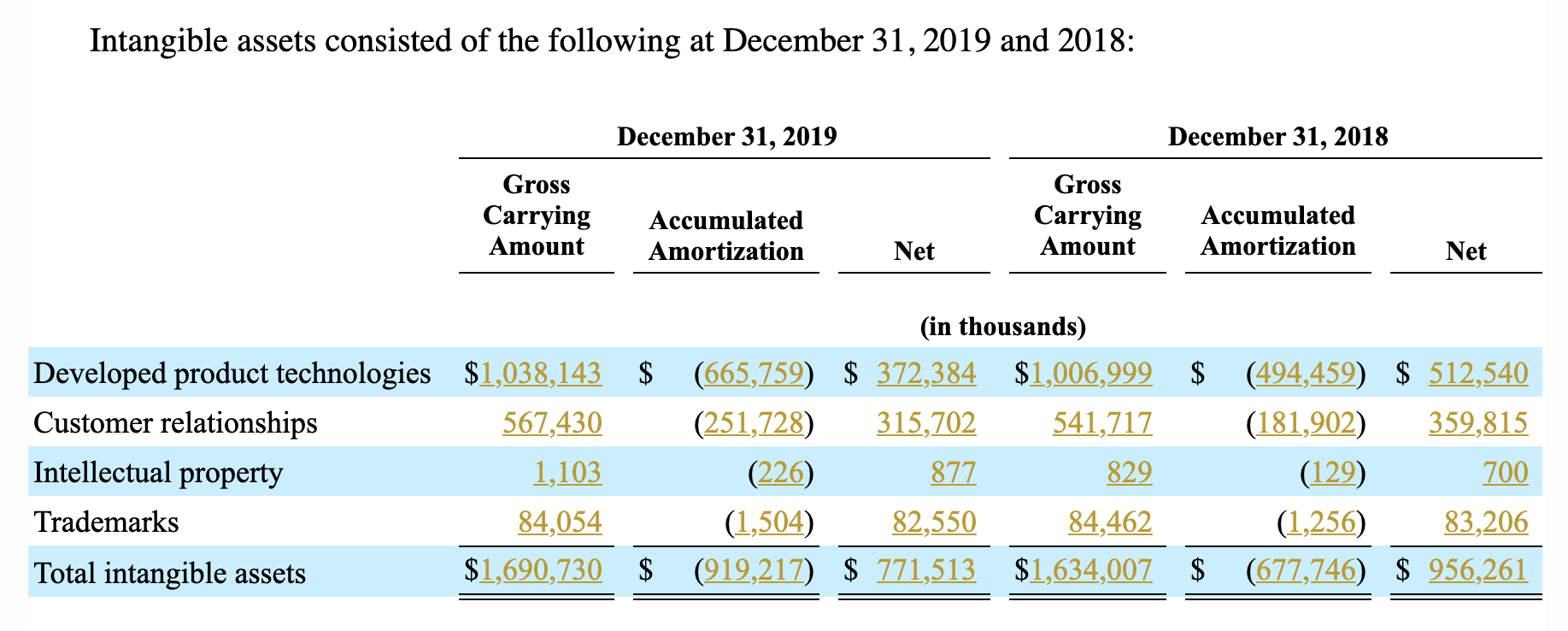Tech firm SolarWinds Corp. ($SWI) is in the headlines lately because it seems to be the vehicle for that massive cybersecurity attack Russian interests launched against the U.S. government and lord only knows how many private businesses.
So we at Calcbench, of course, fired up the Interactive Disclosure Tool to see what we could learn about SolarWinds from its filings. Presumably we didn’t learn as much about the company as the Russians did, but there’s still plenty of interesting stuff in there.
First, if you want to read the 8-K announcing the breach itself, that was filed on Dec. 14 under the deceptively plain heading “Other Events.” There, we see that attackers inserted their malware into SolarWinds’ Orion product sometime in the spring. The company believes that roughly 18,000 customers were affected, around 6 percent of its 300,000 customers overall.
Another interesting morsel from the 8-K shows that the breach is very much material to SolarWinds’ revenue picture:
For the nine months ended September 30, 2020, total revenue from the Orion products across all customers, including those who may have had an installation of the Orion products that contained this vulnerability, was approximately $343 million, or approximately 45 percent of total revenue.
From the firm’s recent income statements, we can see that SolarWinds had been moving briskly in the right direction over the last several years. Revenue went from $422 million in 2016 to $932.5 million last year, and the company had been on pace through the first three quarters of 2020 to end this year north of $1 billion — until this breach happened, that is.
Several other points to note within the company’s most recent 10-K, which was filed last February.
First, SolarWinds disclosed that one distributor posed a customer concentration risk, which is a fairly rare disclosure to see. The exact statement, included in the Summary of Significant Accounting Policies, was this:
We provide credit to distributors, resellers and direct customers in the normal course of business. We generally extend credit to new customers based upon industry reputation and existing customers based upon prior payment history. For the year ended Dec. 31, 2019 a certain distributor represented 12.5 percent of our revenue.
We don’t know who that distributor is. We do know, however, that privately held Carahsoft Corp. is SolarWinds’ exclusive distributor to government customers, and Uncle Sam tends to be a mighty big customer for any business. We also know that SolarWinds did not have any customer concentration issues worth reporting in prior years.
Whatever the details may be, it’s reasonable to assume that in quarters to come SolarWinds will see some revenue disruption, plus higher costs to repair the damage of the attack — and a significant chunk of revenue could disappear with the loss of this one mystery customer. SolarWinds is in a precarious position.
Second, upon hearing “reputation disaster!” we immediately thought “goodwill impairment!” and went to see how much goodwill SolarWinds carries on the books.
The firm reported $4.12 billion in goodwill assets in Q3, roughly 75 percent of the $5.45 billion in total assets SolarWinds reported. Goodwill grew by about 10 percent in 2019, but only by about 1 percent in the first nine months of this year. We’ll be curious to see what the company has to say about potential impairment in its next annual report.
We also noted an item in SolarWinds’ disclosure of intangible assets. See Figure 1, below. Notice the second line, “customer relationships.”

Hmmm. One-third of SolarWinds’ intangible assets are tied up in customer relationships. That typically means something like a customer contract that could be sold to another company, or lists of customer names that might be sold to marketing firms, or just good relations with a customer due to sustained business and other contacts.
We don’t know exactly what’s included in the $567 million customer relationships line item here. Our question, however: could this line item also suffer some sort of impairment due to the cyber attack? For example, if customers stop taking SolarWinds’ calls, or have early-exit clauses due to a breach, could this line item decline in value?
That’s not as common as goodwill impairment, but it happens.